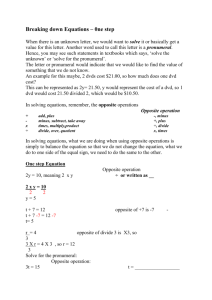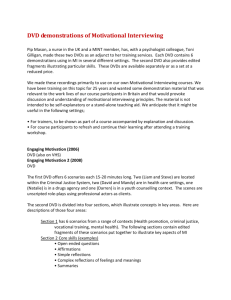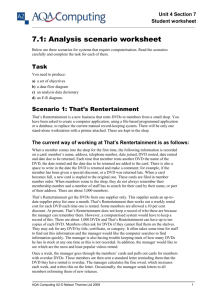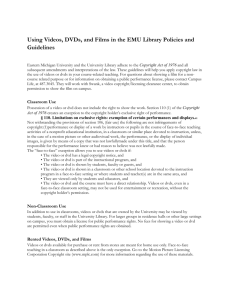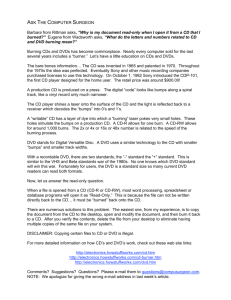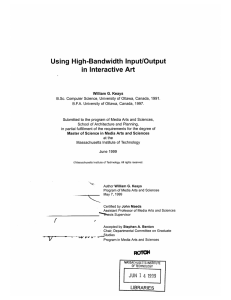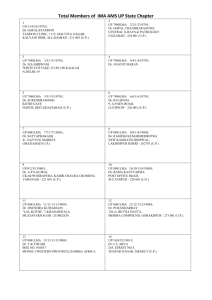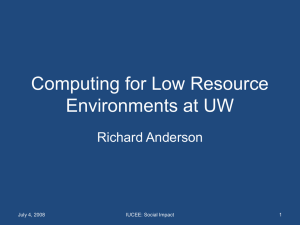Low-Cost High-Latency Unlimited-Bandwidth
advertisement
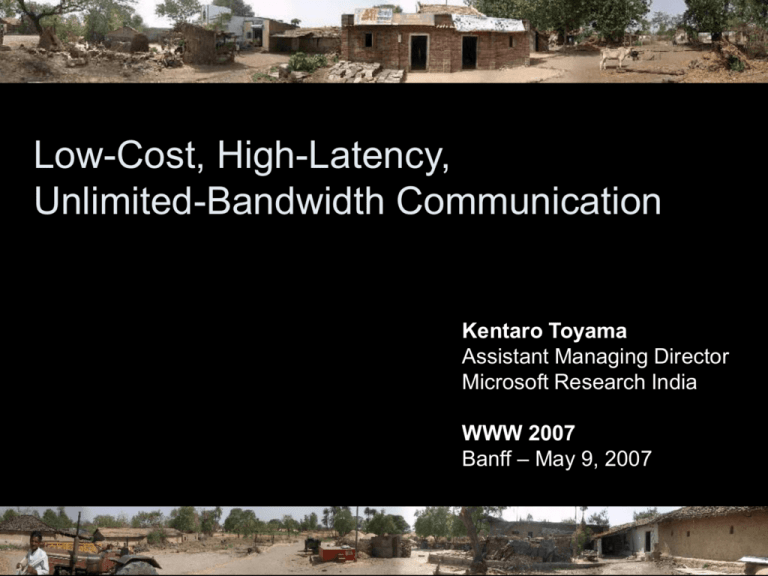
Low-Cost, High-Latency, Unlimited-Bandwidth Communication Kentaro Toyama Assistant Managing Director Microsoft Research India WWW 2007 Banff – May 9, 2007 “Technology for Emerging Markets” Microsoft Research India Research goals: • Understand potential technology users in economically poorer communities Computer-skills camp in Nakalabande, Bangalore (MSR India, Stree Jagruti Samiti, St. Joseph’s College) • Adapt, invent, or design technology that contributes to socio-economic development of poor communities worldwide Interdisciplinary Research MSR India: TEM Aishwarya Lakshmi Ratan – Public Administration and International Development Jonathan Donner – Society Communications Nimmi Rangaswamy – Social Anthropology Rajesh Veeraraghavan Group – Computer Science and Economics Indrani Medhi – Individual Design Kentaro Toyama – Technology Computer Science Randy Wang Innovation – Computer Science Udai Singh Pawar – Physics A rural school in Chinhat, Uttar Pradesh, India Very Poor Communities Traits relevant to information dissemination • Meager economy – High cost of hi-tech • Terrible electrical and telecommunications infrastructure – Poor real-time Internet experience • Low literacy – Multimedia helpful • Slow pace of life – Real-time interaction rarely critical Kodia village, Madhya Pradesh, India Low-Cost, High-Latency, High-Bandwidth? Alternatives to real time: – Delay-tolerant networking • Data trickling with… – satellite communications – mobile phones – point-to-point wireless – Vehicles and WiFi phttp server • DakNet / First Mile Solutions phttp client – DVDs via physical mail • This talk! Digital StudyHall: Problem Poor teaching quality in rural schools Rural school in Chinhat, Uttar Pradesh Digital StudyHall: Problem Good teachers drawn to city with higher salaries and better environments Urvashi’s StudyHall private school in Lucknow Digital StudyHall: Solution Goal: transfer of good pedagogy to rural schools Content: DVD recordings of classes taught by good teachers -- Sent via post on DVD -A DSH class in Uttar Pradesh, India Usage: Rural teachers use DVDs as base material for interactive lessons. Randy Wang, Researcher, Microsoft Research India eSagu Prof. P. Krishna Reddy, Int’l Inst. of Information Technology, Hyderabad Goal: “queryless” delivery of agriculture advice to farmers Content: Digital photographs of farms and crops collected by paid workers in villages -- Sent via post on DVD -Usage: Photos are analyzed by agriculture experts who diagnose and prescribe remedies Some photographs of a cotton crop (and written notes) collected by eSagu Netflix DVD over post works elsewhere… Goal: painless movie delivery to households at a low monthly rate Content: full-length movies -- Sent via post on DVD -Usage: DVDs watched by families in the comfort of their homes; trips to video rental stores eliminated. Jim Gray Data over post is fastest and cheapest Storage capacity doubling each year - 1970: 20MB disk cost $20K Bandwidth improving only 10% a year For large stores, FedEx-ing harddrives cheaper and faster than any other method. “The biggest problem… is customs.” http://www.acmqueue.org/modules.php?name=Content&pa=showpage&pid=43 Not the right model if there is… • Zero electricity • Poor postal service • Not enough financial resources for supporting DVD/VCD playback • No need for high-bandwidth Summary The Internet may need nonstandard channels for poor rural areas. Data transported physically can provide the highest-bandwidth, even in communications-rich economies. DVDs by mail offer a lowcost, high-bandwidth, high-latency alternative! Thank you! http://research.microsoft.com/research/tem kentoy@microsoft.com
